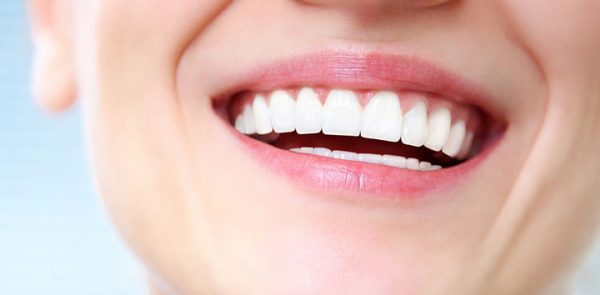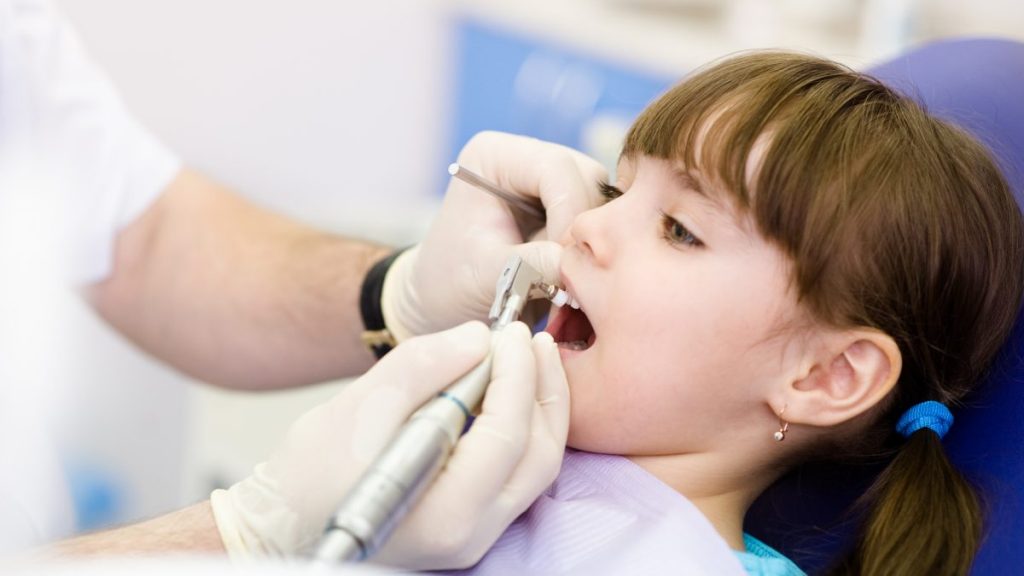TMJ Treatment in Brunswick
If you suffer chronic headaches or facial pain, you’ve most probably seen your doctor or at least asked your chemist for some over-the-counter pain relief medication. But if that’s only provided temporary relief, have you ever considered mentioning these symptoms to your Holistic Dental practitioner? The reason to do so is that headache and facial pain are often the result of dental stress and a condition known as temporomandibular joint disorder – or TMD.
Reasons for Headache
Unexplained Pain Caused by Jaw and Bite
It’s estimated that more than 30% of Australians regularly experience severe headache pain. For some, their headaches are so frequent and ongoing that they are almost considered a ‘normal’ part of everyday life.
Despite the prevalence and severity of headaches, they are often viewed as a more minor – or even trivial – medical condition. But as anyone suffering from chronic headaches knows, they have both physical and emotional consequences that can impact on your family and social life, as well as your capacity to work effectively.
While headaches can be caused by many different factors, many chronic headaches are actually the result of dental stress related to your jaws, teeth or bite. More particularly, headaches and other facial pain can be a symptom of temporomandibular joint (jaw bone) disorder, or TMD.
This may seem surprising. After all, when you have a headache, the pain often feels as though it’s originating more from the crown of your head than from your teeth or jaws. The reason for this is that TMJ disorder usually creates referred pain, making it hard to pinpoint the real source.
Of course, it’s important to know that headache and facial pain can result from a number of different factors, or a combination of factors. That’s why a holistic approach that brings together the expertise of numerous health professionals in a coordinated manner is often the most effective way of developing an effective treatment program.
With our expertise and understanding of TMD, Holistic Dental may well be able to help you find lasting relief for headache and facial pain.
How Headaches Produced by Dental Stress?
To understand how the dental stress can be the cause of headaches and other facial pain, here’s a very brief overview of how the temporomandibular joint (the jaw joint or TMJ) and its related muscles and nerves work together.
If you place your index fingers just below your ears, you can feel the movement of temporomandibular joints on both sides of your face as you open and close your mouth. The joints work in unison with one another, and each comprises two parts. The upper part consists of the temporal bone, which is part of the skull, while the lower part is called the ‘mandible’, or lower jaw bone. The two parts of bone where the joint interacts are separated by a round disc of firm yet supple cartilage. Because the TMJ is flexible, the jaw is able to move smoothly up and down, and from side to side.
In addition to enabling us to chew, talk and yawn, the TMJ is also activated every time you swallow (which happens about 2,000 times a day). This makes it the most frequently used joint in our body, and whenever the TMJ is in operation, a myriad of muscles, nerves, ligaments and tendons are also playing their role. In particular, the TMJ is closely associated with the part of the trigeminal nerve, which acts as the motor nerve that controls the muscles used in chewing. The trigeminal nerve is the largest and most complex of the 12 cranial nerves. Its functions are to take sensations of touch and pain from your face, teeth and mouth and transmit them to the brain.
The pain experienced in temporomandibular joint disorder (TMD) is usually as a result of injury, inflammation or irritation of the muscles, ligaments, tendons, nerves and blood vessels surrounding the TMJ. Sometimes, the signals sent by the nerves to the brain result in what is called ‘referred pain’. This means that the pain sensation you experience feels as though it’s coming from a part of the body.
The pain felt from TMJ headaches is often located in the back of the head or the temples, or can be felt as referred pain elsewhere on the face.
How to Get Treated Temporomandibular Joint Disease (TMD)?
TMD is essentially a dental condition that is primarily diagnosed and treated by a TMJ dental practice, such as Holistic Dental. The treatment of TMD depends largely on what factors have contributed to the condition and can range from conservative dental care through to complex surgery. In some cases we will recommend a multi-pronged treatment strategy that involves the input of other health professionals such as a chiropractor, an orthodontist, an oral and maxillofacial surgeon, or a pain management specialist.
Because TMD can be a very complicated condition, the first step of any treatment is to commence with a thorough diagnosis. This may often require the use of specialised diagnostic equipment that can help assess the positioning of your lower jaw and teeth, and well as the functioning of the temporomandibular joint. Additionally, X-rays, MRIs or CT scans may be required, as well as a plaster model of your teeth.
Once your Holistic Dental practitioner has confirmed the diagnosis of TMD, they will develop a treatment or management plan. In most circumstances, the approach is to commence with conservative and reversible treatments that don’t involve making permanent changes to the teeth, jaw or joints through surgery. This phase of therapy may include the following:
I am text block. Click edit button to change this text. Lorem ipsum dolor sit amet, consectetur adipiscing elit. Ut elit tellus, luctus nec ullamcorper mattis, pulvinar dapibus leo.
Bite splints:
A bite splint or neuromuscular orthodontic is one of the most basic non-surgical interventions used for treating TMD. Shaped like a mouthguard, the splint is specifically designed so that the jaw muscles can learn where to be positioned when the teeth come together. The splint helps separate the teeth and provides a way for the jaw muscles to relax (or be ‘deprogrammed’).
Dental treatment:
If missing teeth, ill-fitting dentures and other dental problems are contributing to a bad bite, then restorative dental treatments such as crowns,bridges or implants will be required.
Medication:
Certain medications can be effective in reducing pain and inflammation, however, long-term use of sedative-type drugs can result in a number of undesirable side-effects.
Physical therapy:
Depending on the type of pain you’re experiencing, and what is causing your TMD, physical therapy can help relax the muscles, improve your posture and relieve pain. This type of therapy may involve light stretching, the use of ultrasound, the application of hot or cold packs, and using a TENS (Transcutaneous Electrical Nerve Stimulation) device to apply a low level of electrical current to affected area, to relieve stiffness and pain.
Stress management and behaviour modification:
Psychological or emotional conflicts can be integral to TMD, while ingrained bad habits such as tooth clenching aggravate the condition. Lifestyle counselling, psychotherapeutic interventions, behaviour modification programs as well as relaxation and stress-reduction therapies, can all play an important role in treating TMD.
If these therapies provide no relief from the symptoms of TMD, surgery may be considered. In most cases, surgery is only recommended as a last-resort option. This is partially due to the fact that surgery is irreversible, and also because TMD surgery is extremely complex and offers the potential for serious complications.
Your Holistic Dental practitioner can discuss with you the various surgical interventions that can be used to treat TMD, and outline their benefits and risks.
Symptoms of Temporomandibular Jaw Disorder or TMD
TMD can result in significant pain and impairment of the normal functioning of the jaw. While severe headache and facial pain are amongst the most common symptoms, the condition may also be indicated by the following:
- Radiating pain in the jaw, face, neck or shoulders
- Pain or tenderness around the ear when chewing, speaking or opening your mouth wide
- Stiff jaw muscles , or jaws that get stuck or locked
- Painful clicking, popping or grating sounds in the jaw joint when opening or closing your mouth
- Difficulty or discomfort when chewing due to a change in the way your upper and lower teeth fit together
- A tired feeling in the face
While TMD can also be the cause of toothaches, earaches, hearing problems and even depression, many of the indicators of TMD are similar to those of other conditions. Similarly, it’s often said that no two TMD sufferers experience the same symptoms and pain, which makes correct diagnosis more challenging.
If you’re experiencing any of the symptoms described above, you should consult your doctor as well as your Holistic Dental practitioner.
Causes of TMJ Disorder
When the temporomandibular joint is functioning normally, it combines an up-and-down hinge action with side-to-side sliding motions. Where the two parts of the joint interact, the bone is covered with cartilage and separated by a small articular disc that acts like a shock absorber.
The TMJ can become damaged when it experiences undue strain, or is subjected to abnormal wear and tear. This can lead to the excessive stretching of the joint ligaments, displacement of the articular disc, or an overworking of the jaw muscles.
Some of the most common causes of TMD include:
When your teeth don’t fit together or you have an uneven ‘bite’, you place irregular stress on your jaw, which over time can damage the functioning of the temporomandibular joint, leading to TMD. An uneven bite can be the result of the jaw and teeth not forming properly during childhood, or occur because teeth are broken or missing; previous dental work was substandard; or due to ill-fitting dentures. Similarly, loss of bite-height due to teeth becoming worn down from teeth grinding, can lead to an unnatural position of the lower jaw when chewing.
Abnormal head and neck posture (which may itself be the result of some accident or injury), or chewing on one side of the mouth due to some other dental damage or discomfort, can result in uneven pressure on the temporomandibular joint, leading to weakness and damage.
Problems such as poor nutrition and a lack of dental hygiene, or damage to the cartilage due to conditions such as rheumatoid arthritis, can all impact on the healthy functioning of the temporomandibular joint.
When you repetitively clench or grind your teeth you place continuous pressure and pain on the TMJ. Sleep bruxism occurs when sustained contractions of the jaw muscles cause the teeth to rhythmically grind while you’re sleeping. Bruxism during waking hours is an involuntary clenching of the teeth. It usually occurs in reaction to specific situations such as tension or stress. Similarly, bad oral habits such as clenching the teeth, biting your lip, cheek or nail or holding objects such as a pen or pencil between the teeth, can also cause temporomandibular joint problems.
A blow to the head, a bad fall or the impact of whiplash sustained in a motor vehicle accident are all examples of traumas that can damage parts of the temporomandibular joint and result in TMD.
Putting too much food into your mouth at the one time, crunching hard lollies, crushing ice, or eating foods that require excessive chewing, can put an unnecessary burden on the temporomandibular joint.




















